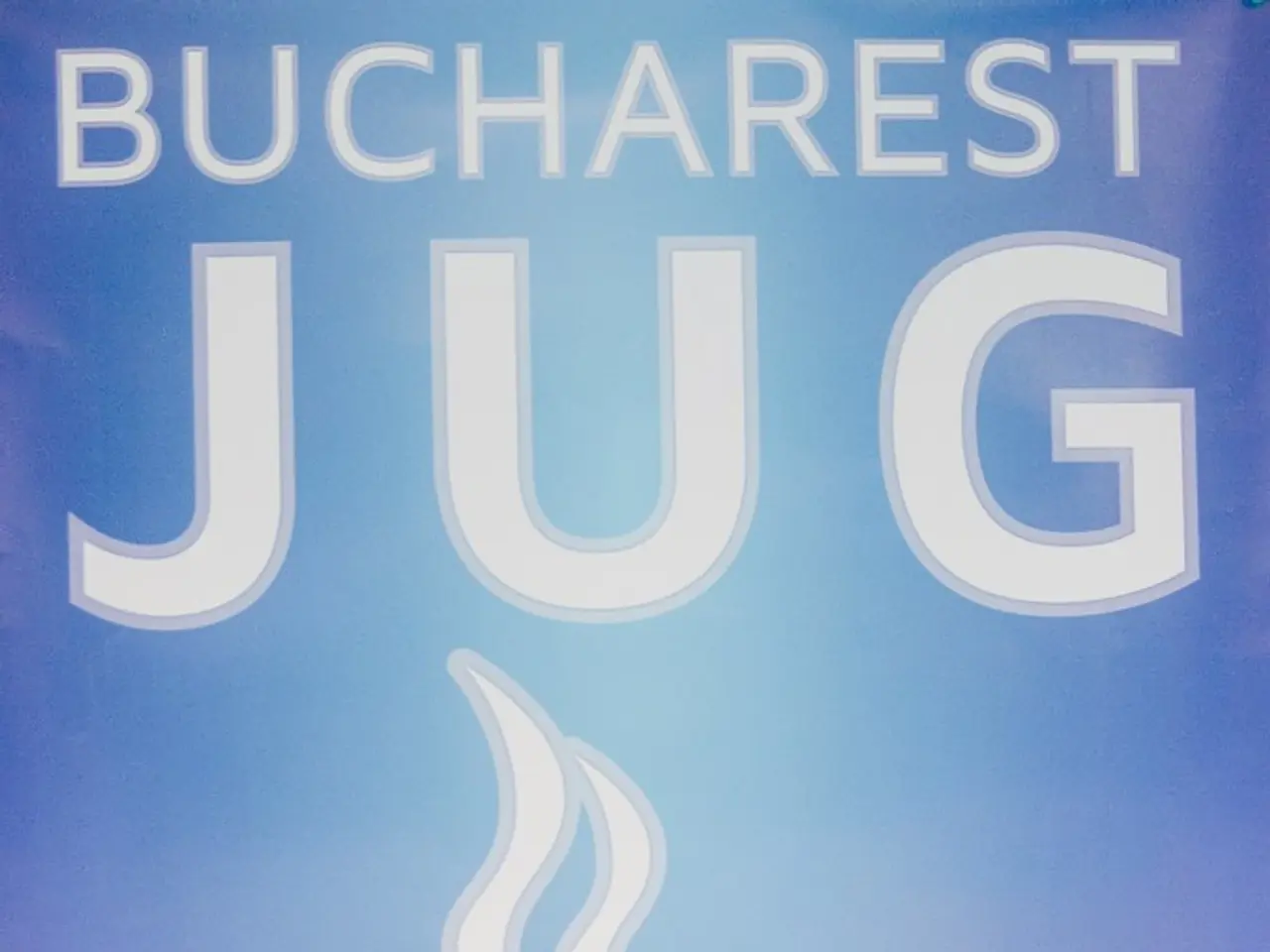Financial giant BlackRock enlists BNY Mellon to provide digital shares of its $150 billion tokenized treasury trust fund using distributed ledger technology (DLT)
In a groundbreaking move, global investment giant BlackRock has unveiled a new $150 billion tokenized Treasury fund, known as the BUIDL fund. This innovative product aims to integrate blockchain technology with traditional finance while adhering to established U.S. securities regulations [1][4].
The BUIDL fund focuses on U.S. Treasury Bills (T-bills), offering ultra-low risk investments backed by the U.S. government's full faith and credit. With this offering, BlackRock is appealing strongly to institutional buyers, who value the legal clarity and predictable yields [1][3].
As of mid-2025, BlackRock's BUIDL fund accounts for approximately $2.9 billion AUM, commanding a 40% share of the rapidly growing tokenized Treasury bills market, which expanded from $100 million in January 2023 to about $7.5 billion by June 2025 [1][3].
The fund issues rebasing tokens (BUIDL), which maintain dollar parity by distributing yield through newly issued tokens on predefined intervals, as opposed to yield-bearing tokens that accrue yield through price appreciation [1].
BNY Mellon serves as the primary distributor for the BUIDL fund, linking traditional custodial infrastructure with blockchain asset management. This collaboration enhances trust and regulatory compliance for the institutional clientele while leveraging BNY Mellon’s extensive distribution network [4].
The tokenized fund is available across seven blockchains, with Ethereum capturing 93% of the supply, reflecting strong blockchain adoption in institutional treasury products [1]. The fund remains under stringent regulatory frameworks, meaning it is currently available only to qualified institutional buyers and accredited investors who meet relevant suitability and compliance standards [4].
Institutional investors benefit from the token’s 24/7 tradability and instant settlement capabilities, increasing liquidity and capital efficiency compared to traditional markets [1][2]. Leading crypto platforms such as Crypto.com and Deribit accept BUIDL tokens as collateral, symbolizing a bridge between decentralized and traditional finance markets [2].
The BUIDL token works as a tokenized Treasury-backed asset and collateral in decentralized finance (DeFi), supported by partnerships such as Ethena Labs and Securitize, enabling 24/7 atomic swaps and improving liquidity and capital efficiency across markets [2].
This blending of DeFi technology with traditional fixed income assets sets a precedent for the convergence of traditional and decentralized finance ecosystems, enhancing transparency, regulatory compliance, and access to real-world assets on-chain [1][2].
By tokenizing traditional Treasury instruments, BlackRock allows asset holders to benefit from blockchain features (such as transparency, faster settlement, and programmable yield distribution) without sacrificing regulatory oversight or security [4].
In essence, BlackRock’s $150 billion tokenized Treasury fund represents a pivotal advancement in institutional adoption of blockchain for traditional assets, anchored by regulatory compliance, extensive institutional distribution via BNY Mellon, and integration into the broader digital asset ecosystem through tokenization and DeFi connectivity [1][2][4].
[1] Source: BlackRock press release, June 2025 [2] Source: BNY Mellon press release, June 2025 [3] Source: CoinDesk report, July 2025 [4] Source: SEC filing, June 2025
- As the BUIDL fund expands into the decentralized finance (DeFi) realm, it is likely that we'll see more news about technological advancements in the integration of traditional finance and blockchain technology.
- With institutional interest in tokenized Treasury products growing, finance experts are closely watching the news on the tokenization of assets like BlackRock's $150 billion BUIDL fund, as it showcases the potential for blending traditional finance with blockchain technology within regulated frameworks.




